Scientific Presentations at 2019 Ruesch Symposium Inspire
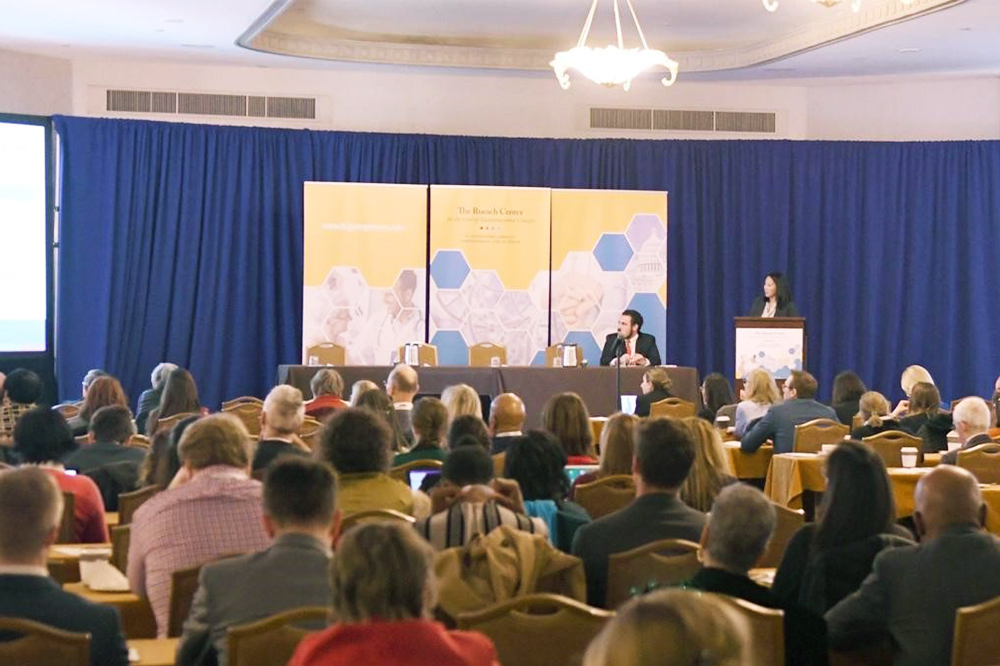
Posted in Lombardi Stories | Tagged cancer, cancer research, gastrointestinal cancer, Ruesch Center, Ruesch Center Symposium
(December 9, 2019) — Some of the brightest minds in gastrointestinal (GI) cancer from around the country gathered for the scientific session of the 10th-annual Ruesch Symposium at the Omnishore Hotel in Washington, DC.
With a packed agenda, the daylong event on December 6 brought together clinicians, researchers, patients, caregivers, policymakers and representatives from industry for discussion, networking and debate of critical issues related to GI cancers.
This year’s scientific programming provided a forum for discussions on cutting-edge research and the pipeline of promising new therapies and technologies in GI cancers.
Among the many topics that created buzz were the emergence of microbiome science, the expanding role of immunotherapy in GI cancer, the use of liquid biopsies in treatment and innovative approaches to localized treatment of GI cancers.
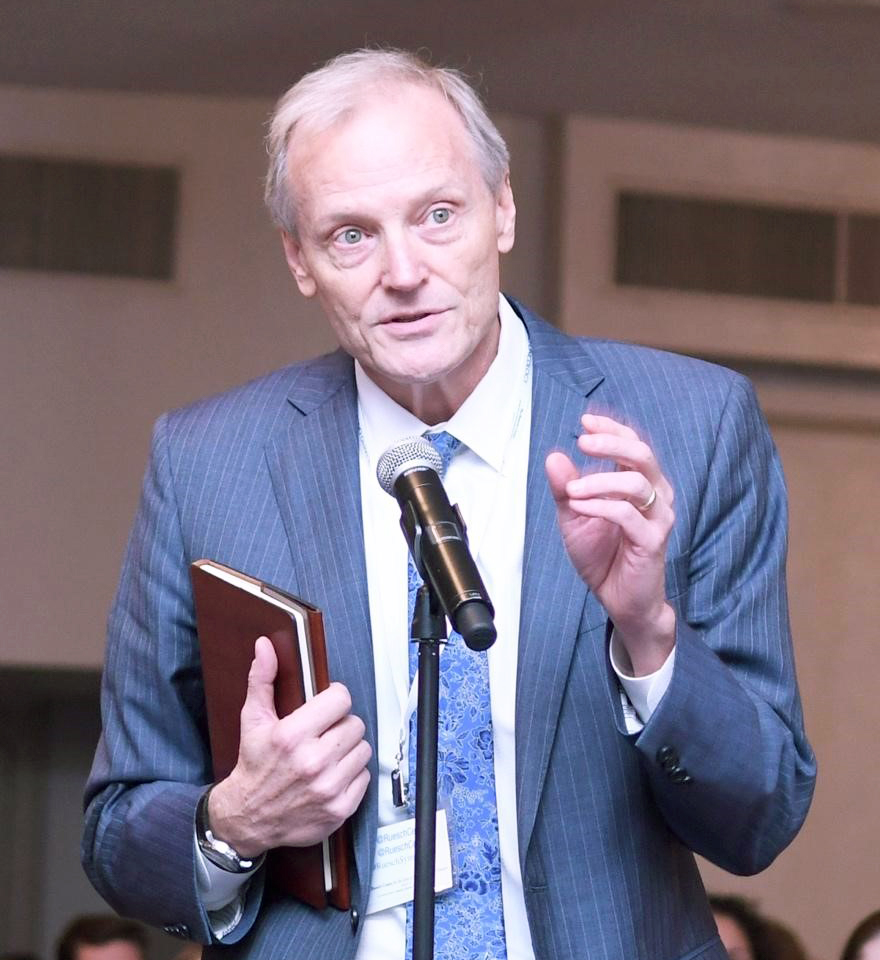
Returning briefly from sabbatical to lead the event, John Marshall, MD, director of Georgetown Lombardi’s Ruesch Center for the Cure of GI Cancers said, “Never before have I seen so many major new discoveries in GI cancers. Possibly the most exciting of all is the interplay between the microbiome, cancer and our immune systems. The panels at our 10th-annual meeting highlighted the impact of research funding. Finally, long-awaited GI cancer research funding is being translated into hope for the future.”
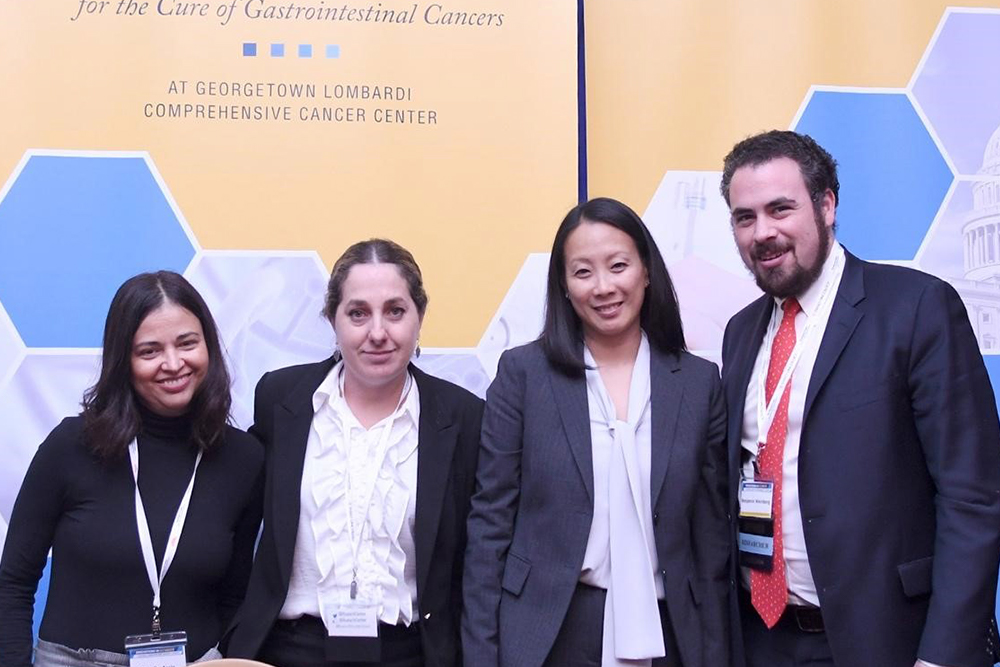
The symposium launched with an exploration the microbiome’s emerging role in GI cancer moderated by Georgetown’s Lombardi’s Ben Weinberg, MD, assistant professor of medicine.
“This morning’s session showed the complexity of interactions between the microbiome and the immune system. We heard about the importance of understanding the role of the microbiome in young onset colorectal cancer and the need to perform large, prospective studies with meticulous sample collection. We also learned about data suggesting that an increase in diversity of a tumor’s microbiome in pancreatic cancer leads to more immune cell infiltration and longer survival. And we heard about the efforts to elucidate the role of obesity’s effect on the pancreatic tumor microbiome,” said Weinberg.
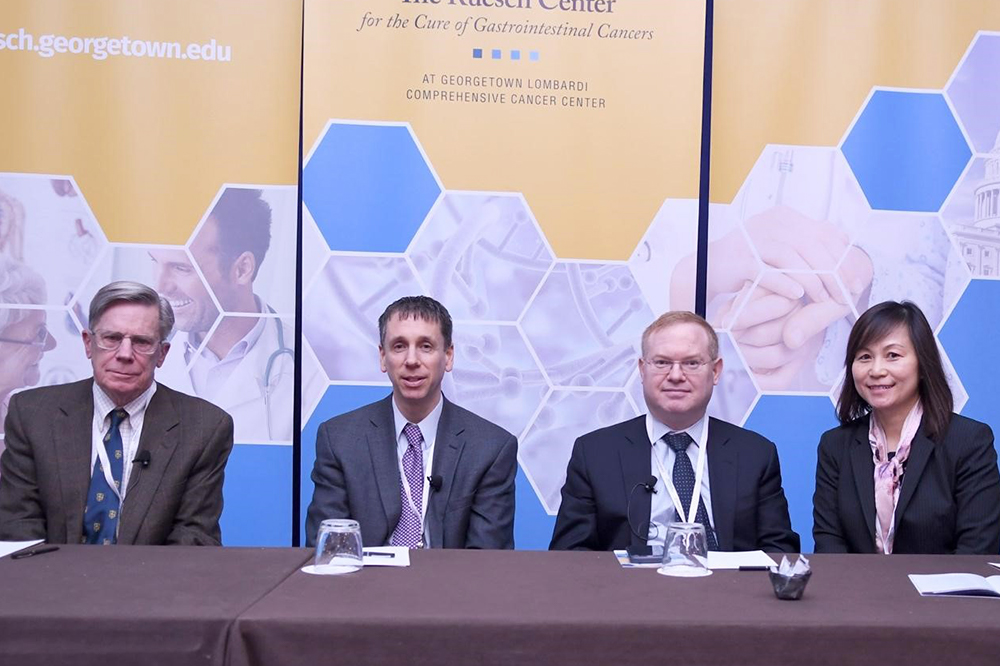
With a focus on immunotherapy, a panel moderated by Georgetown Lombardi’s Aiwu Ruth He, MD, associate professsor of oncology, addressed different mechanisms that may account for the resistance of GI cancer to immune therapy and possible strategies to overcome the immune tolerance and render the tumor sensitive to immune therapy.
In one presentation, researchers explained how in animal models, liver cells trigger a “pro-metastatic” reaction to prepare the liver to take in metastatic cells from pancreas cancer. Detection of the “pro-metastatic” reaction may predict metastasis of cancer to the liver and could provide a target for prevention or reversal of the “pro-metastatic” activity to lower the risk of cancer metastasizing to liver. Another presentation explored ways of bringing T cells into tumors to induce an anti-tumor response and make pancreas cancer sensitive to immune checkpoint inhibitors, while a third presentation explored possible ways to exploit differences in primary pancreatic cancer and metastases to sensitize pancreas cancer to immune therapy.
“The work presented is very important, supported by strong preclinical research work that may have implication in clinical research,” said He.
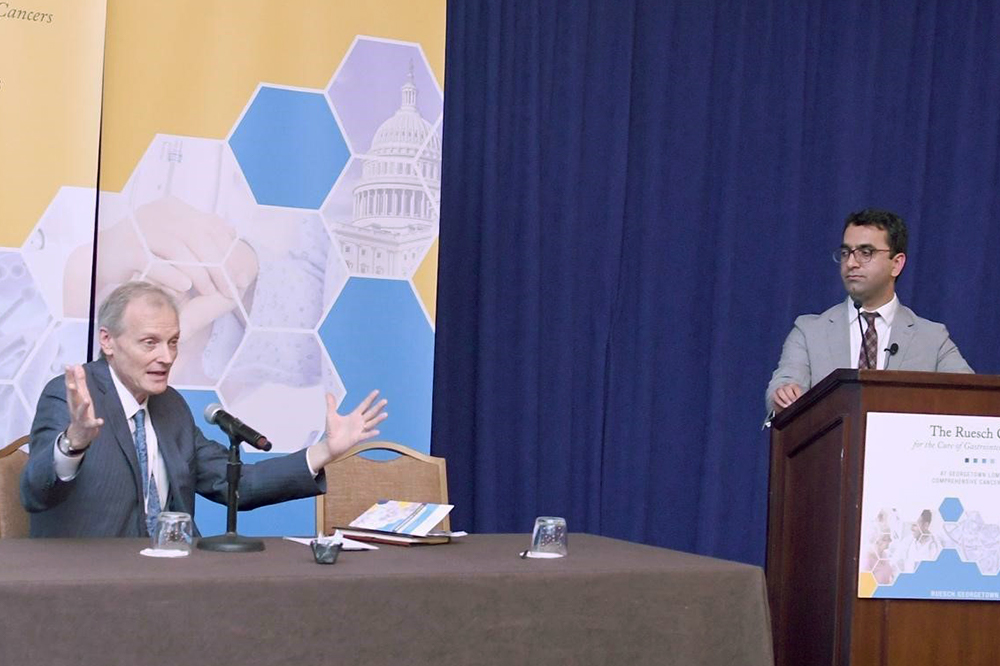
This year’s Schafer Memorial Lecture was presented by Pashtoon M. Kasi, MD, MS, from the Holden Comprehensive Cancer Center at the University of Iowa, who shared his work in utilizing liquid biopsies in the treatment of cholangiocarcinoma, a group of cancers that begin in the bile ducts.
“The role of liquid biopsies — more appropriately being able to detect cancer DNA in the blood — immediately changes standard practice and provides a potential tool for the future, predicting who needs chemo and who does not. Dr. Kasi provides some early answers to my prayers!” said Marshall.
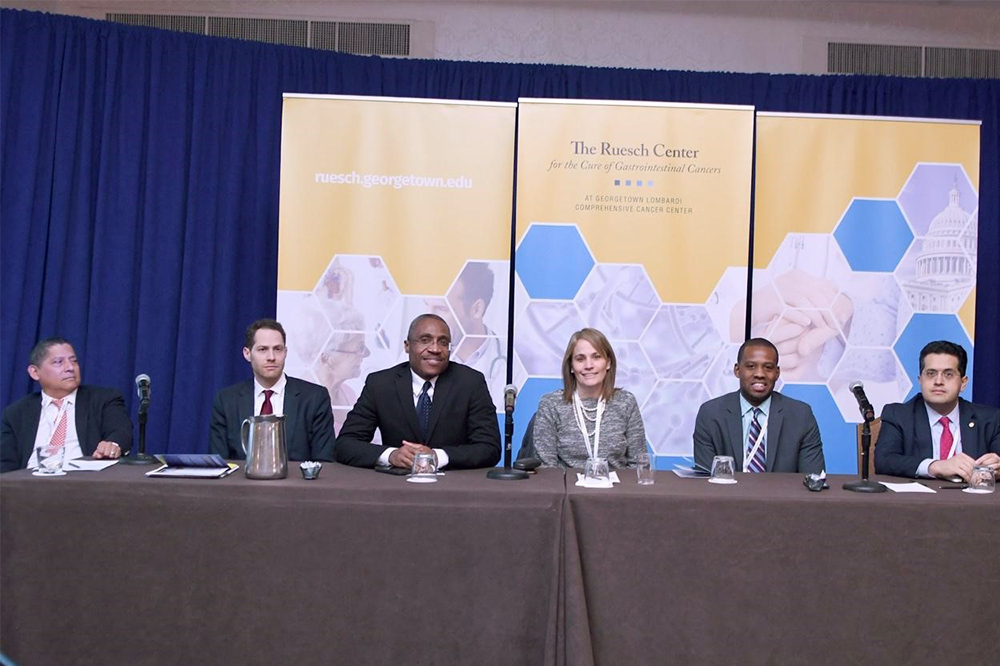
Recognizing the growing complexities impacted by the rapidly changing science in managing GI cancers, the final panel brought together experts from various disciplines. “I believe that in order to deliver the highest quality of care, these types of discussions are crucial, especially in the setting of increasingly complex cancer care,” said the panel’s moderator, Marcus S. Noel, MD, associate professor of medicine and co-director of clinical research management at Georgetown Lombardi.
Before concluding the symposium, Marshall reflected on all of the scientific presentations, saying they further buoyed his outlook on GI cancer care. “I’ve been around for a while, and to see the science and then juxtapose it with the immunotherapy stuff we heard today makes me feel like I might live to see our goal of trying to cure these cancers. It’s really exciting stuff.”
